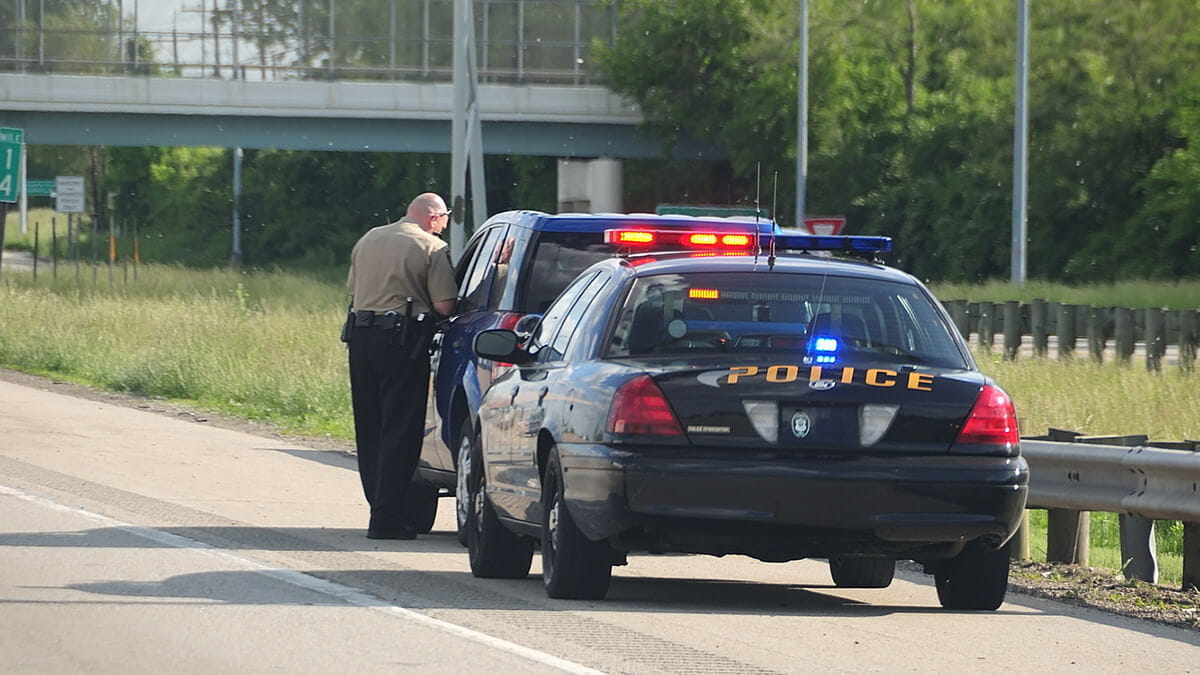As the number of people who experience behavioral crises grows, so does the demand on law enforcement officers, who are often among the first or the only ones to respond to distress calls.
But many of those officers lack the training to deal with these situations as effectively as do trained social workers and mental health counselors. That’s why over the past few years, more and more criminal justice agencies have partnered with mental health professionals on a range of training and crisis intervention programs.
“Over the last several years, police departments have taken on the responsibility of supporting the community by handling an increased volume of calls associated with mental health issues,” said Jessie Lee, PhD, a retired law enforcement executive and criminal justice program director at Walden University. “This has changed the dynamics of policing, sometimes in a way that officers are not prepared to address. As we become more aware of mental health in general, police need to develop new, creative, and socially responsible ways of managing acute mental health crises, including expanding law enforcement capabilities and partnerships to address these types of calls for service.”
“There’s been this evolution over time that I think is a very healthy one and a good one,” added Pete Meagher, PhD, director of skills labs and residency at Walden University. “You can see it in municipalities across the country.”
Here are a few of the ways mental health professionals can aid law enforcement.
- Training Crisis Intervention Teams. Crisis Intervention Teams (CIT) include experienced law enforcement officers who respond to mental health calls or help other law enforcement officers who are not CIT-trained.1 Mental health professionals lead CIT training so officers have the skills needed to interact safely and effectively with people experiencing mental illness. Studies show CIT programs reduce arrests of people with mental illness and increases the likelihood they will receive mental health services.2 CIT training is also associated with improved officer attitude and knowledge about mental illness.
- Joining co-responder teams. Mental health professionals serve on co-responder teams with law enforcement officials, responding to mental health calls together for an entire shift.1 While models differ, most of these teams can help de-escalate situations and determine if a person needs behavioral health help.
- Supporting mobile crisis teams. Mobile crisis teams intervene wherever a crisis is occurring. Mental health professionals on the team often work closely with police and hospital emergency personnel and may provide pre-screening assessments or act as gatekeepers for inpatient hospitalization.3 They can also connect people with community-based mental health programs and services.
- Providing counseling for officers and their families. Citizens involved in distress calls aren’t the only ones who may experience trauma. James Herndon, PhD, former police psychologist and a contributing faculty member at Walden University, says police officers are exposed to traumatic calls for service on a regular basis—including homicides, child abuse, and domestic violence—that can impact their mental health, but many are reluctant to acknowledge they need help. Mental health professionals work to overcome the stigma of mental illness by providing officers and their families with education, routine mental health screenings, and counseling.
Earning a PhD in Criminal Justice
Want to impact the future of criminal justice? An PhD in Criminal Justice can prepare you for leadership roles within the field or to begin a career in criminal justice education.
Walden University’s online PhD in Criminal Justice program explores contemporary theory and practice as well as national and international issues in the administration of criminal justice. Taught by seasoned doctoral-level faculty with practical experience in the field, courses cover risk factors for criminal behavior, leadership theory, human services, technology and law enforcement, homeland security, and public management.
As an doctoral criminal justice student, you can choose from a range of specializations, including Emergency Management, Global Leadership, Justice Administration, and more.
Walden University also offers other online criminal justice degrees, including an MS in Criminal Justice and a BS in Criminal Justice. Or, if you’re interested in the human services aspect of criminal justice, Walden University offers an online PhD in Human Services with a Criminal Justice specialization.
Walden makes it easy to get started. With our online curriculum, you have the freedom to take classes whenever—and wherever—you choose and prepare to create effective solutions to real-world criminal justice problems.
Walden University, an accredited institution, offers a PhD in Criminal Justice program online. Expand your career options and earn your degree in a convenient, flexible format that fits your busy life.
1Source: www.ncsl.org/research/civil-and-criminal-justice/mental-health-needs-of-criminal-justice.aspx
2Source: www.nami.org/Advocacy/Crisis-Intervention/Crisis-Intervention-Team-(CIT)-Programs
3Source: www.nami.org/Learn-More/Treatment/Getting-Treatment-During-a-Crisis
Walden University is accredited by The Higher Learning Commission, www.hlcommission.org.
Note on Licensure
Walden’s PhD in Criminal Justice program is not considered a Professional Peace Officer Education program for the state of Minnesota and is not designed or intended to prepare graduates for licensure as a peace officer, police officer, or other law enforcement officer in any state.




